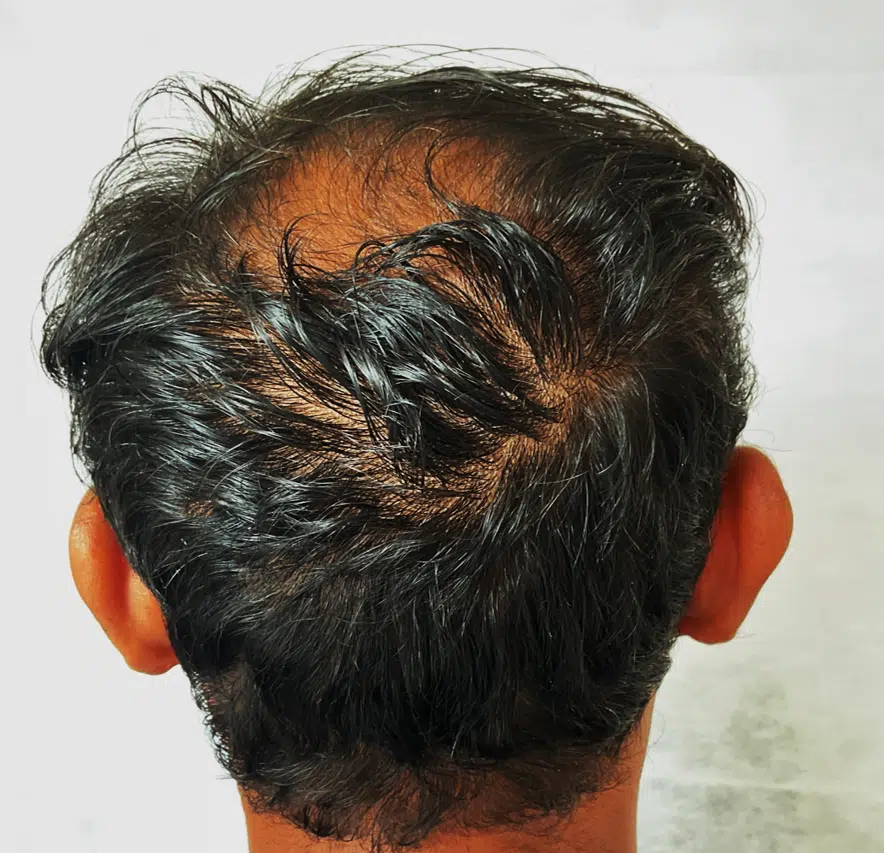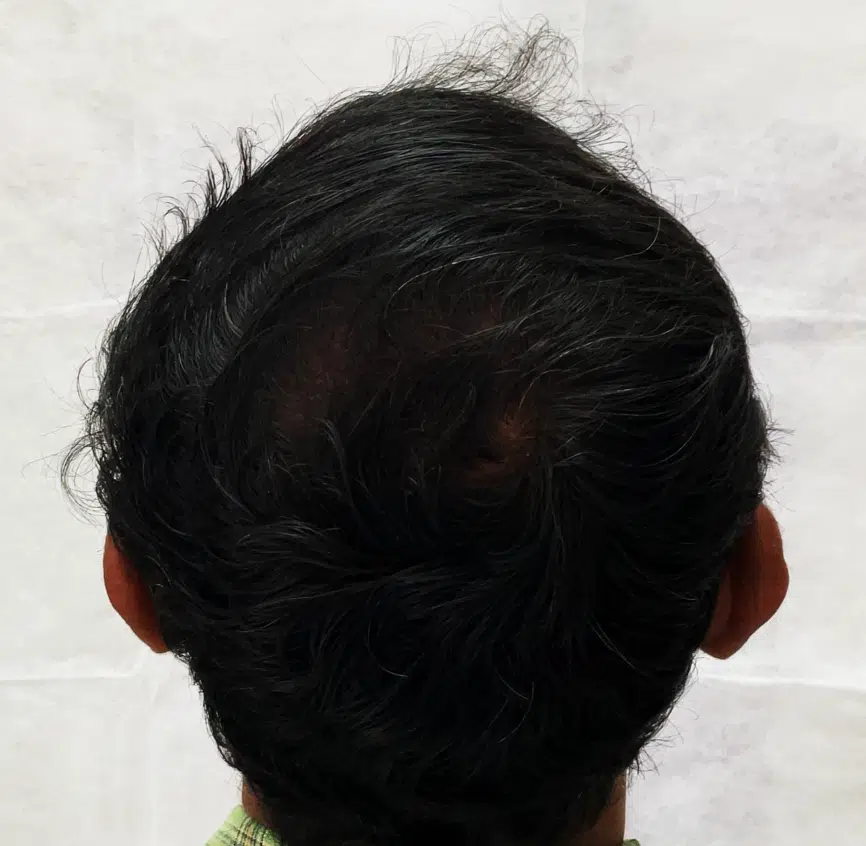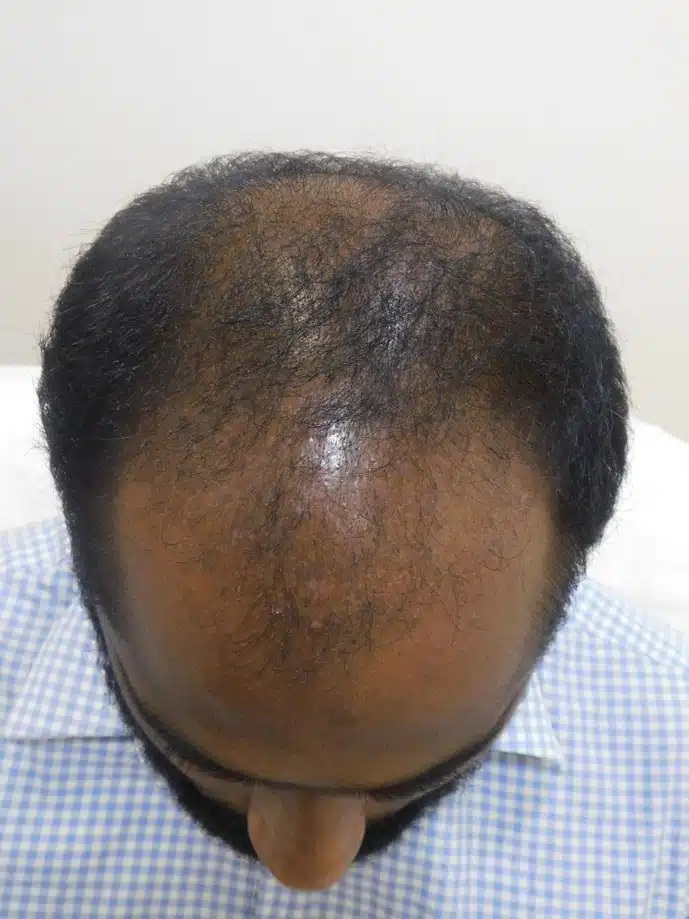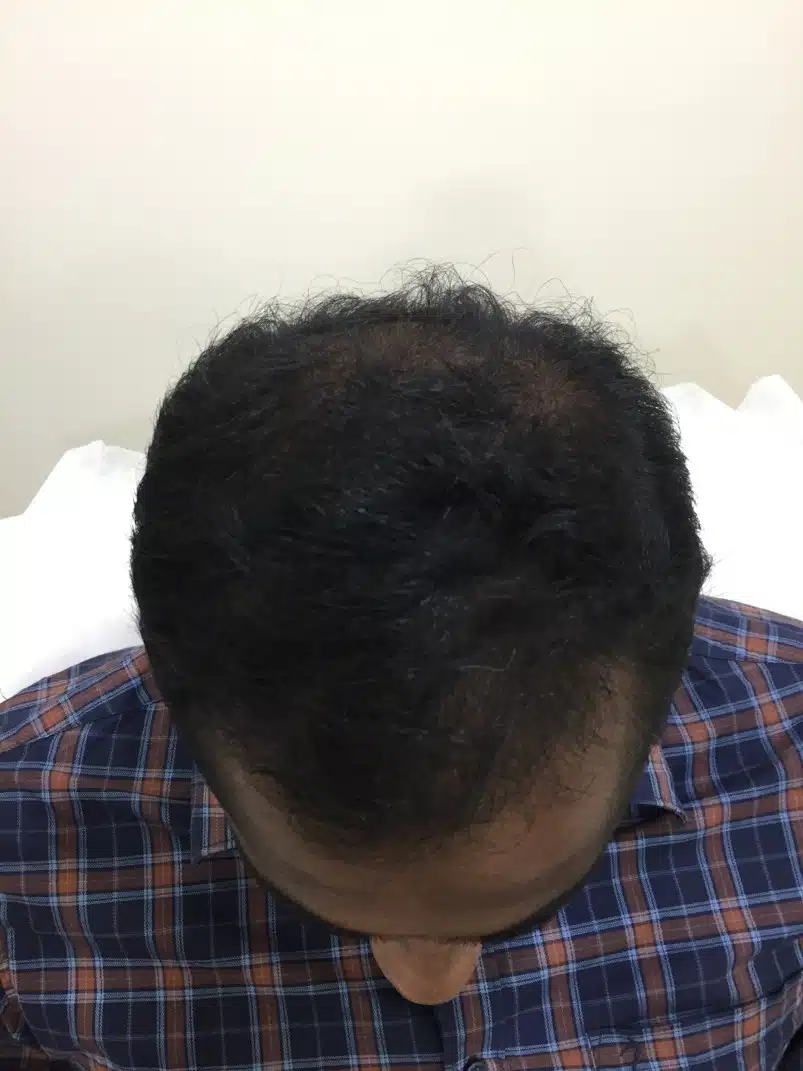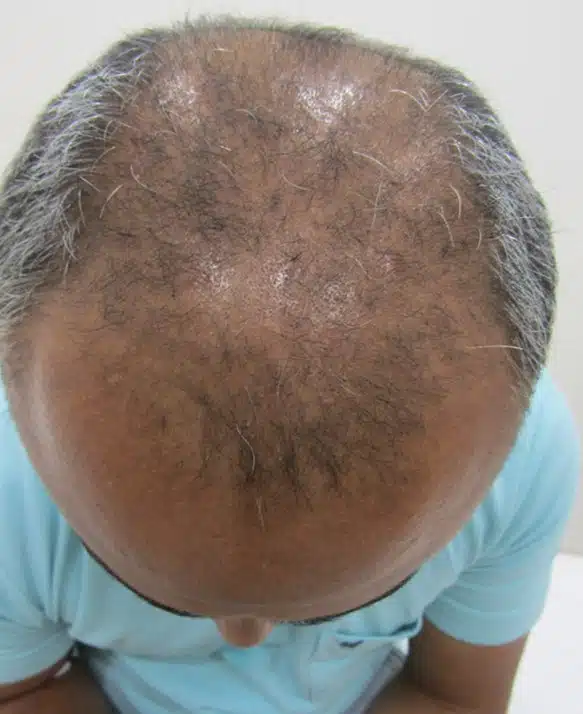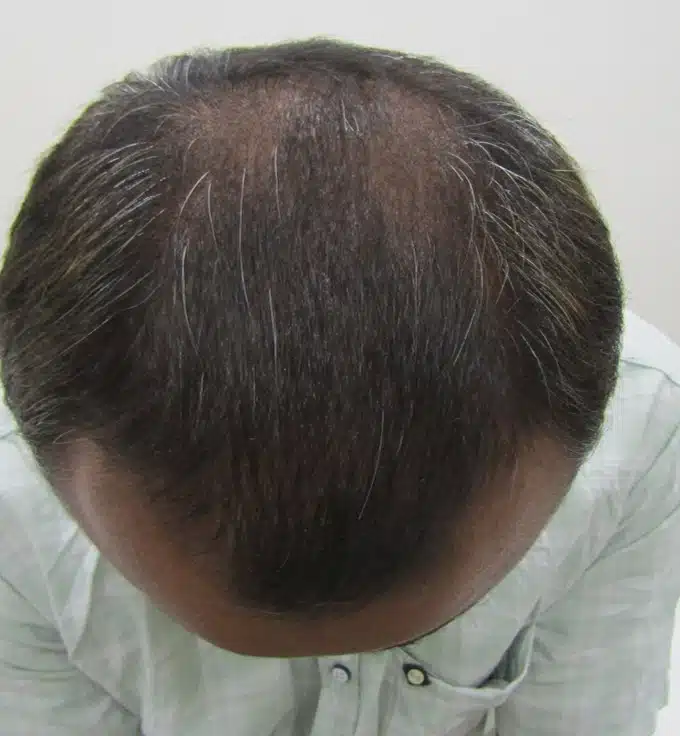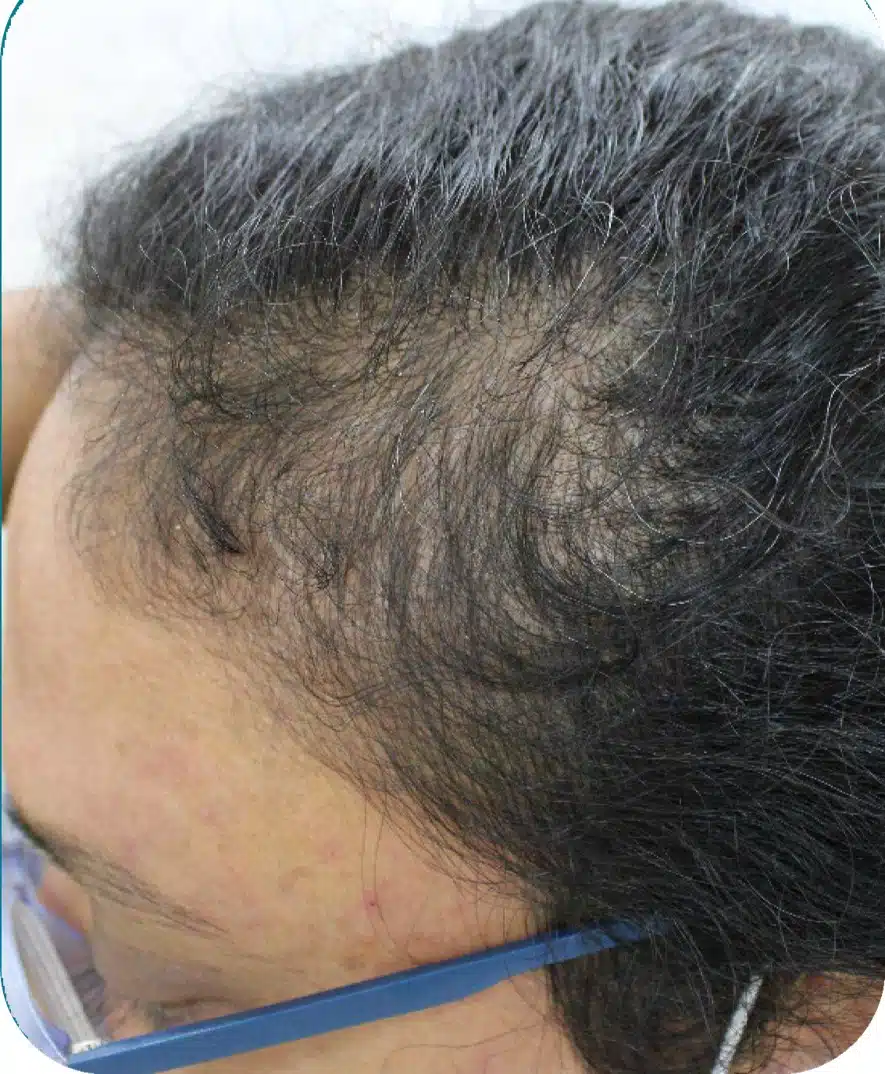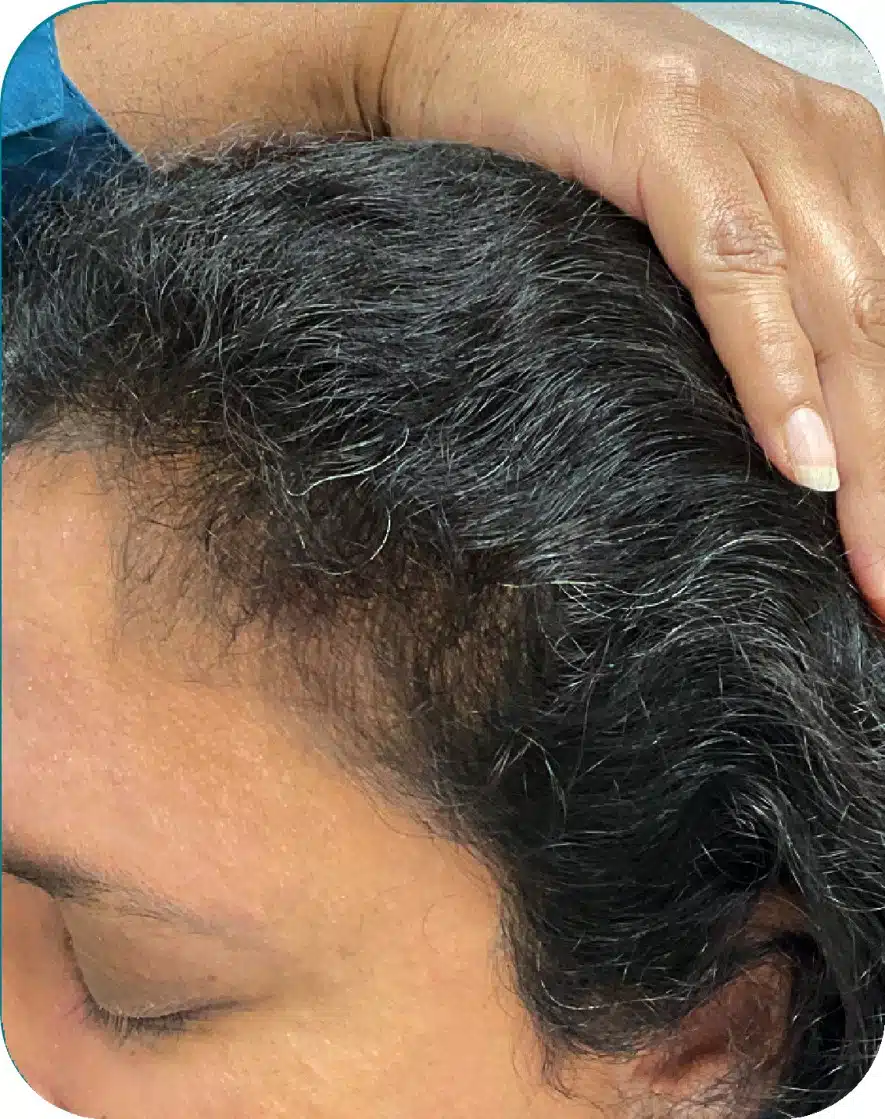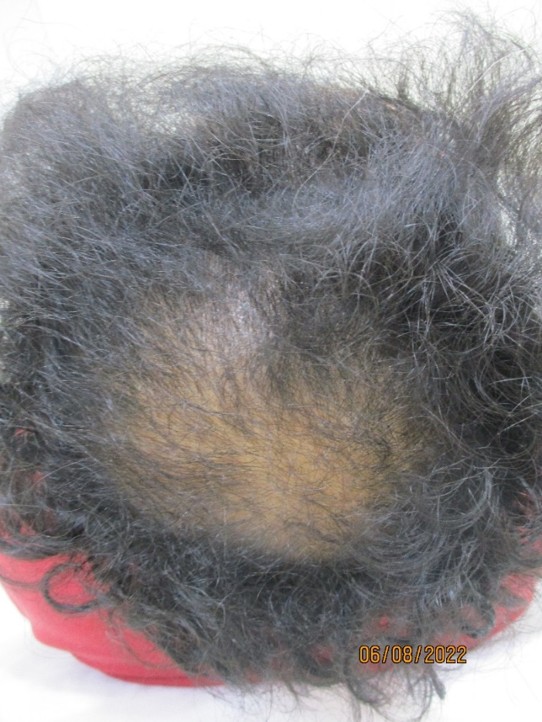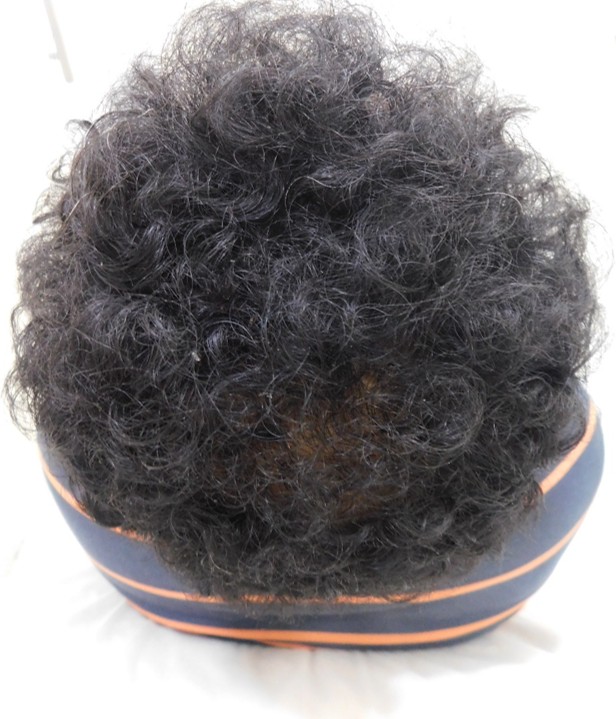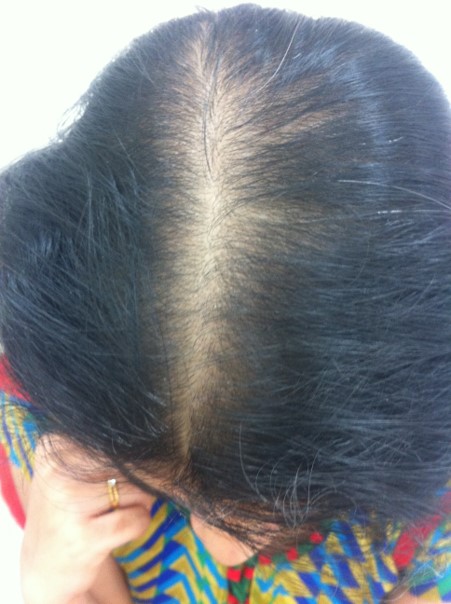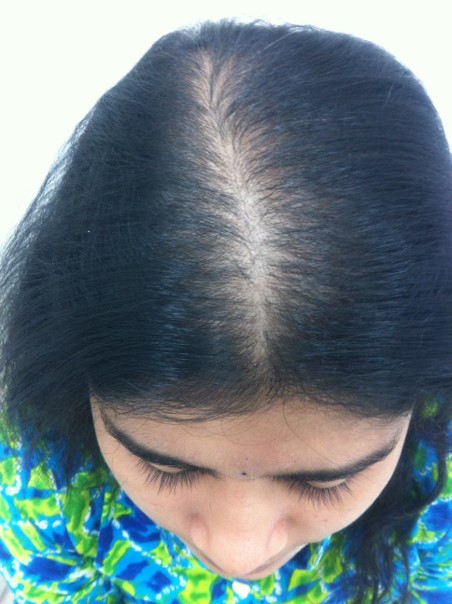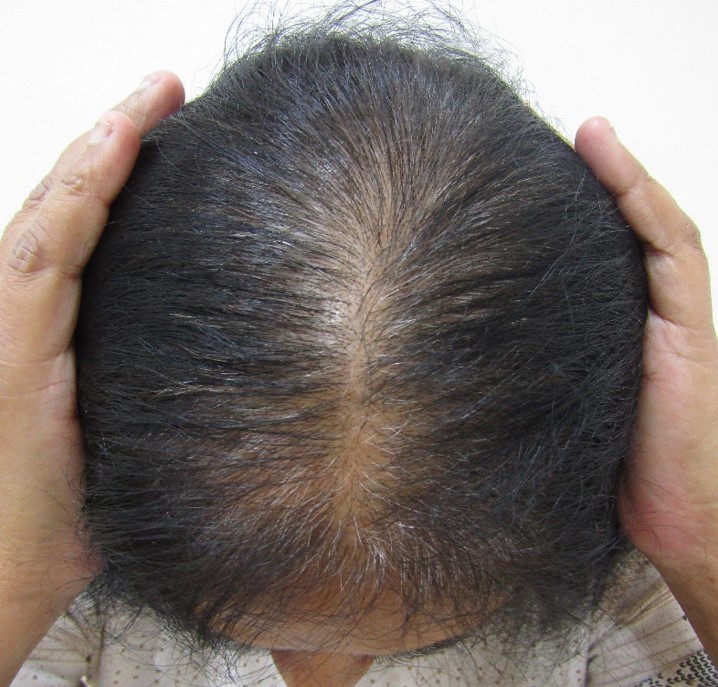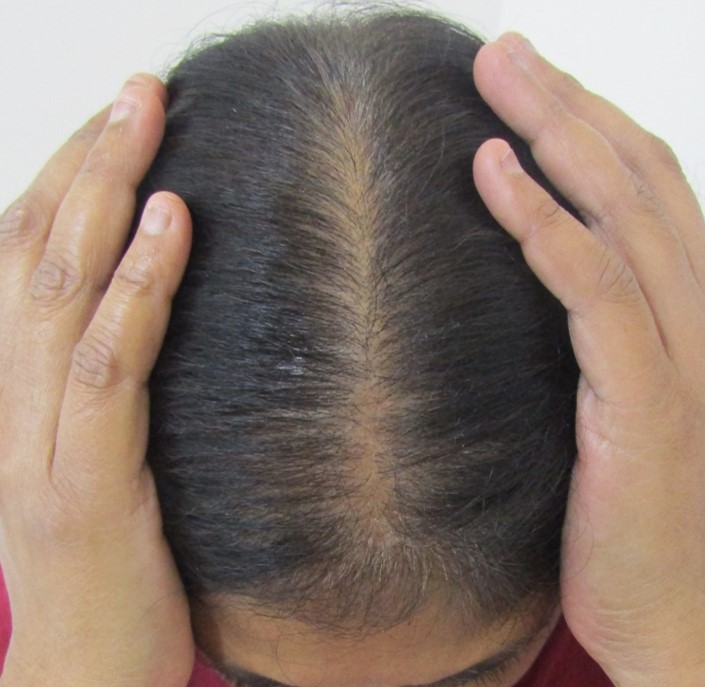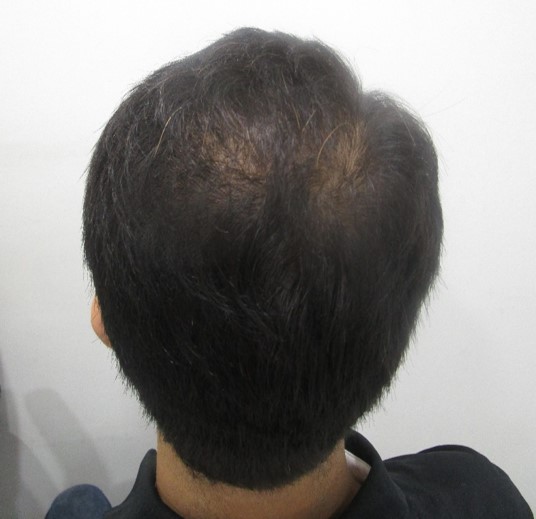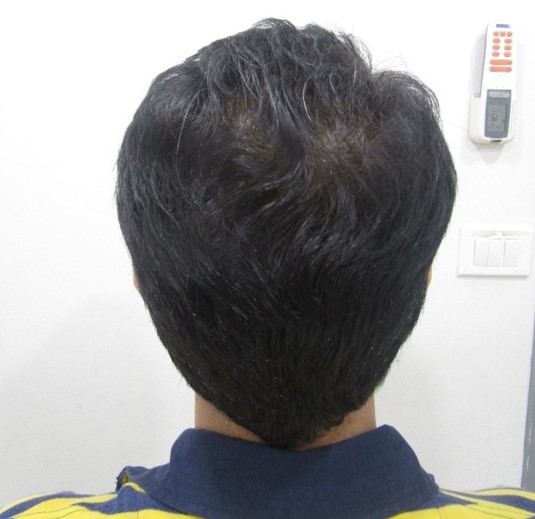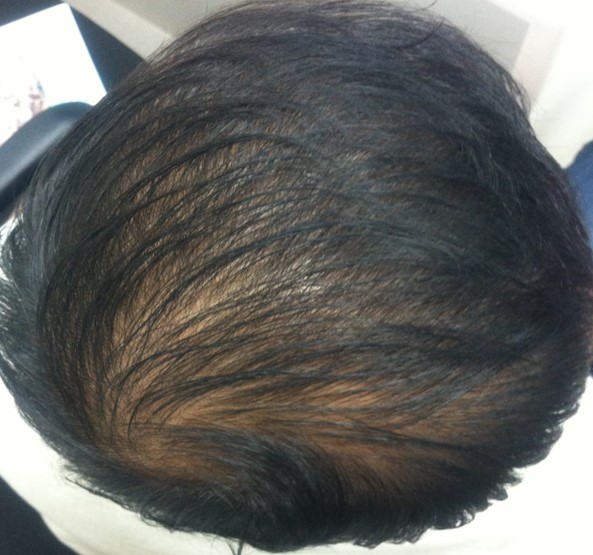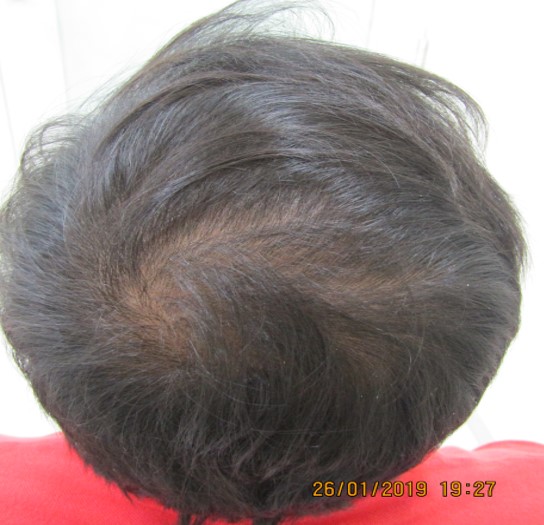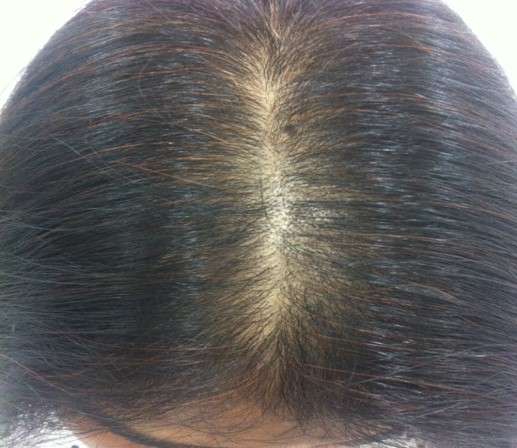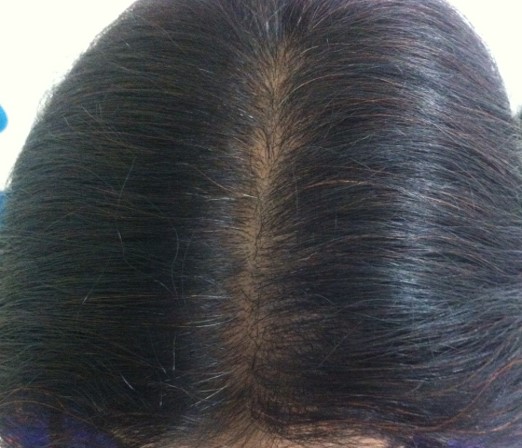In This Article
How Diet Affects Hair Health: Foods for Stronger & Healthier Hair
Besides your genetics and hormones, your diet and lifestyle also play a major role in maintaining your hair health. Poor eating habits and lifestyle can contribute to hair loss and thinning. In this article, we will explore how nutrition influences your hair health, how to make the right food choices for your hair health, and the dermatology treatments available for unmanageable hair loss.
In This Article
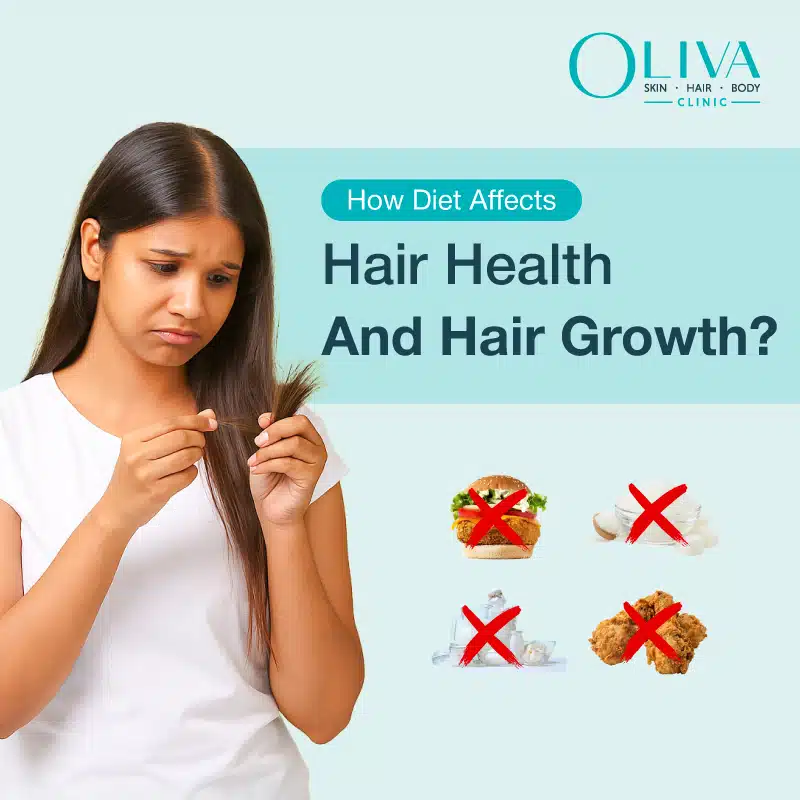
How Diet Affects Hair Health And Hair Loss?
Nutritional deficiencies directly impact hair follicles, which are among the most metabolically active cells in the body. Insufficient iron, zinc, and vitamin D and B12 can disrupt the hair growth cycle, leading to hair thinning and hair shedding. [1] Further, not consuming enough protein slows down keratin production, the key to healthy hair. Crash dieting, another common approach that people follow, causes poor nutrient absorption leading to telogen effluvium, a condition when you undergo sudden and extreme hair loss. It is important to consult a doctor who can identify the deficiencies.
Key Nutrients And Their Role In Hair Health
Here is a table of nutrients and the role they play in maintaining your hair health:
| Nutrients | Role in Hair Health | Sources |
| Biotin (B7) | Supports keratin production | Eggs, nuts, salmon |
| Iron | Delivers oxygen to hair follicles | Spinach, red meat, lentils |
| Zinc | Aids follicle recovery and growth | Pumpkin seeds, yoghurt |
| Vitamin D | Regulates hair cycle and follicle health | Sunlight, fatty fish, mushrooms |
| Protein | Builds hair structure (keratin) | Chicken, legumes, dairy |
| Omega-3s | Reduce inflammation and nourish scalp | Salmon, flaxseeds, walnuts |
| Vitamin B12 | Supports red blood cell production for nutrient delivery; prevents thinning & greying. | Fish, eggs, chicken, dairy, fortified cereals |
Foods That Cause Hair Fall
There are certain foods that can indirectly damage your hair when over-consumed.
Here is a list:
- Processed And Junk Food: They are filled with high sugar content, too much oil, and unhealthy fats. They are also highly refined, causing insulin spikes, which can shrink your follicles. This disrupts hair growth.
- Sugary Foods And Drinks: You will experience a spike in blood sugar levels, which can contribute to hormonal fluctuations that increase hair fall.
- Refined carbs: The body quickly converts foods like white bread, white rice, pasta etc, into sugar, which impact your blood circulation and lead to hair loss.
- Excessive Alcohol And Caffeine Consumption: These dehydrate your body and your scalp, negatively impacting your hair health. Continued alcohol consumption also depletes iron and zinc levels, making hair weak and brittle.
- Red Meat And Processed Meats: Red meat can increase DHT levels, which are directly linked to patterned baldness. Processed meats, on the other hand, contain preservatives that can impact circulation.
- Certain Packaged Foods: Packaged food items like chips and ready-to-eat food items are packed with excess salt to maintain shelf life. They cause dehydration, which makes your hair dry and brittle.
- Foods With Additives: Consuming excessive amounts of diet sodas, artificial sweeteners, foods with preservatives contribute to oxidative stress, thereby poor skin and hair health.
- Overconsumption Of Dairy Products: While this may not be a concern for everyone, some individuals may experience dandruff, scalp acne, and hair loss when consuming full-fat milk, cheese, and butter.
Note
Some of these foods can cause hair loss and thinning in a few people. It is best to consult a dermatologist before you stop consuming these foods and identify the underlying cause of your hair loss.
Best Foods To Prevent Hair Fall
Here are some of the best foods that prevent hair fall and help you maintain your hair health:
- Foods Rich In Protein: Hair is made of the protein keratin. Consuming eggs, lean meats, fish, and legumes is good for your hair health.
- Foods Rich In Iron And Zinc: Iron and zinc deficiencies affect your hair health. Include spinach, kale, other leafy greens, pumpkin seeds, sunflower seeds, and nuts in your meal plan.
- Fruits And Vegetables: They contain vitamins A, C, D, and E, which are important for scalp health. You can have sweet potatoes, carrots, berries, oranges, guavas, avocados, and mushrooms that are rich in these vitamins.
- Healthy Fats And Dairy: Healthy fats contribute to the shine and strength of your hair and also nourish hair follicles. Include Greek yoghurt, low-fat milk and cheese, ghee, Olive oil etc.
- Hair Superfoods: Walnuts, chia seeds, oats, and dark chocolate (in moderation) are all superfoods that make your hair healthy and strong.
Can Supplements Help Prevent Hair Fall?
If you have vitamin deficiencies, your dermatologist will recommend supplements, along with the right treatment, food, and lifestyle changes. These may include iron, vitamin D, zinc, and biotin (biotin deficiency is extremely rare).
When Diet Isn’t Enough: Advanced Treatments for Hair Fall
Well-balanced, nutritious meals play an important role in keeping your hair healthy, but they are not enough. Hair fall can have many triggers: genetics, hormonal fluctuations, scalp conditions, stress, medical conditions or medications etc, and food alone cannot fix it.
Combining healthy meals with advanced dermatology treatments that address the root cause of your hair loss will help stimulate your hair follicles to give you long-lasting results.
Here are some advanced dermatology treatments that offer proven hair regrowth results:
- PRP Hair Treatment: Oliva’s unique Double Factor PRP hair treatment uses the client’s blood sample to extract platelet-rich plasma using an advanced double-spin centrifuge method. Experienced dermatologists then inject this platelet-rich plasma into the hair loss areas of the scalp to stimulate dormant hair follicles. [2] They usually combine this treatment with oral and topical medications, based on the client’s hair loss type and severity.
- QR678 NEO: QR678 NEO is a non-invasive hair regrowth treatment, where dermatologists inject plant-derived biomimetic peptides into the hair loss areas. It gives excellent, natural-looking results and is effective for all types of hair loss. [3]
- Hair Threads: Hair Threads treatment at Oliva is minimally-invasive, where dermatologists insert bio-absorbable PDO threads that stimulate growth factors and strengthen hair follicles. They also improve blood flow and nourish the scalp, improving hair density.
- Hair Transplantation: Hair transplantation is a surgical treatment where a hair transplant surgeon extracts healthy hair follicles from the donor area (the back of the scalp) and inserts them in the bald spots. It is best for people experiencing balding. It is a permanent solution with natural-looking results.
Why Choose Oliva Clinics For Hair Fall Treatment?
Oliva Clinics is the no.1 dermatology clinic chain delivering real, lasting results to 8 lakh clients with a 97% satisfaction rate. Here is why you should choose Oliva for your hair fall treatment:
- Experienced Dermatologists: Highly experienced dermatologists customise treatment plans for every client based on their unique needs. This ensures comfort, safety, and results that last.
- 5-Step Consultation: Every client starts their treatment with an in-depth consultation with a dermatologist and a nutritionist who study your medical and genetic history, lifestyle, and food habits to determine the cause of your concern. Based on this information, they design a treatment plan that works best for you.
- No Hidden Costs: At Oliva, we maintain 100% transparency, ensuring our customer care team clearly explains the treatment details and costs to our clients. Clear communication and staying true to our word are our driving principles.
Before & After Results Of Hair Fall Treatments At Oliva Clinics
Take a look at the remarkable results of customised hair fall treatments at Oliva Clinics.
Frequently Asked Questions
It depends on the underlying cause of your hair loss, but consuming nutritious food can definitely improve your hair health.
Poor diet can increase hair loss, but if you catch it early and make changes to your diet you can get back on track. We recommend that you consult a dermatologist for a holistic analysis if you are experiencing hair loss or thinning.
This varies for everyone, and the underlying cause also plays a major role. The key is to build a healthy lifestyle with balanced meals, exercise, and enough quality sleep.
Yes, we have a team of trained nutritionists who customise meal plans for clients based on their unique needs.
Read This Next
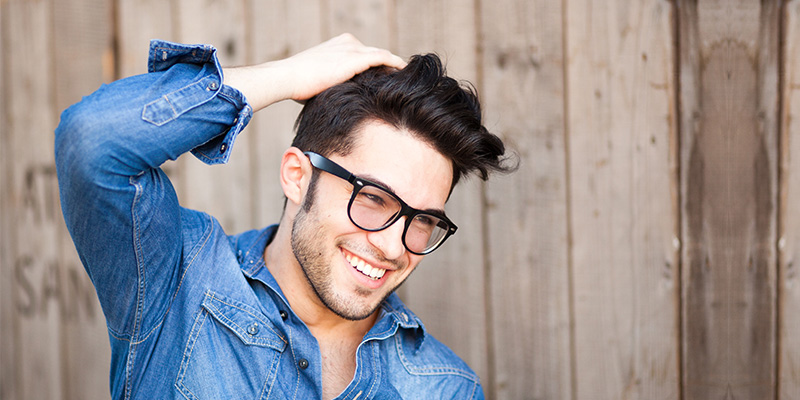
Revealed! Highly Effective Method For Hair Regrowth
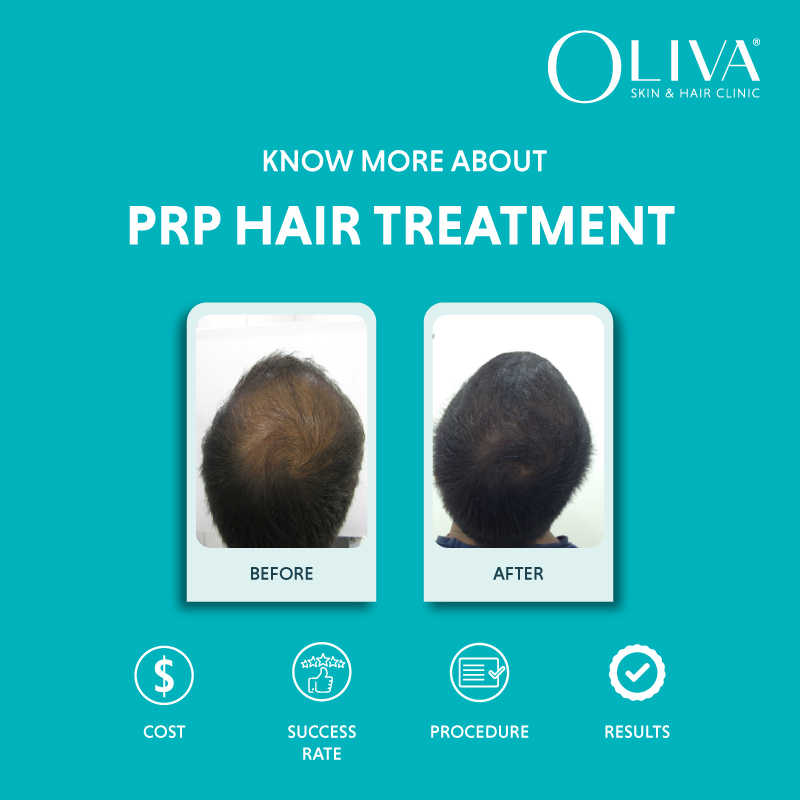
PRP Hair Treatment In India: Cost Starts At INR 5,500, Side Effects & Procedure
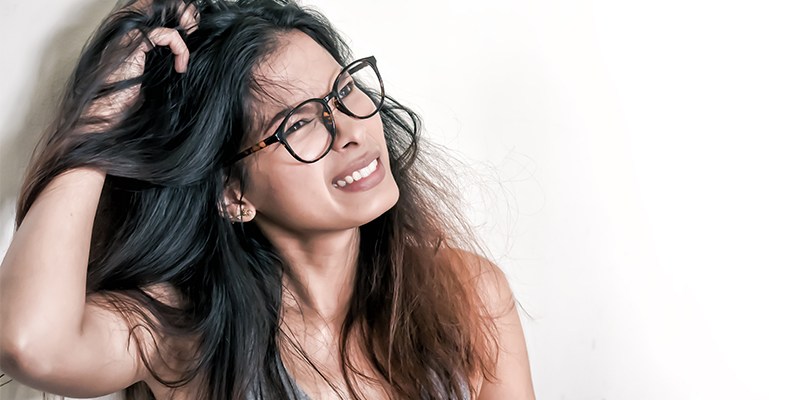
Itchy Scalp And Hair Loss: Causes, Treatments and Prevention
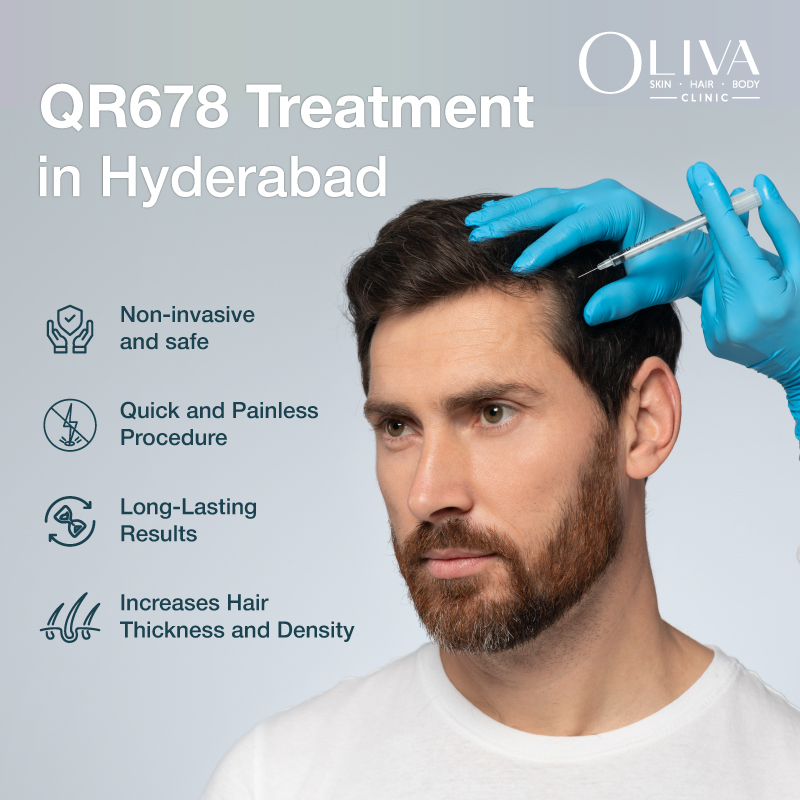
QR678 Hair Treatment In Hyderabad: Cost, Results, Procedure & Benefits
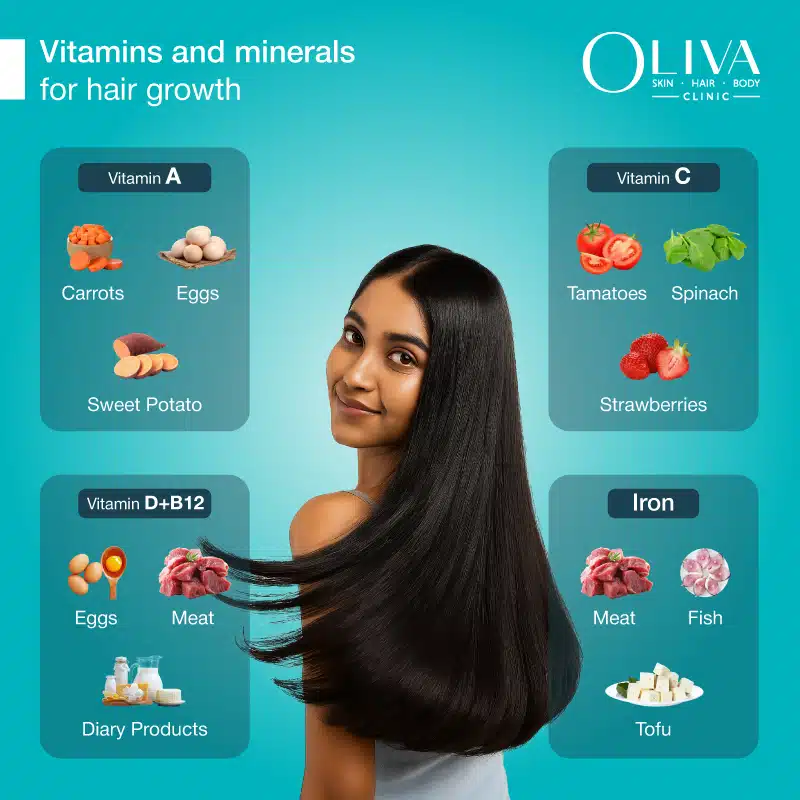
Best Vitamins And Minerals For Hair Growth And Thickness


